Prostate Cancer Surgery in Ahmedabad
The prostate gland makes fluid that is part of semen. This gland sits below the bladder and in front of the rectum, and forms a ring around the urethra, the tube that carries urine out of the body.
Prostate cancer happens when normal cells in the prostate gland change into abnormal cells and grow out of control.
Prostate cancer occurs most often in men older than 50. Although This cancer is very common, most men do not die from it. Because this kind of cancer usually grows very slowly.

Prostate Cancer Symptoms
This cancer often causes no symptoms at first. But if symptoms do occur, they can include:
- Needing to urinate more often than usual
- A urine stream that is slower than usual
- Difficulty in starting urination
- Sense of incomplete voiding
- Retention of urine
- Blood in urine
Prostate cancer symptoms can also be caused by some conditions. But if you have these symptoms, you should let your doctor know.
Prostate Cancer Investigations
S. PSA
It is a blood test which detects PSA i.e Prostate specific antigen. PSA is raised in this cancer. It may be raised in some other conditions too. So, meet an Urooncologist if your PSA is raised.
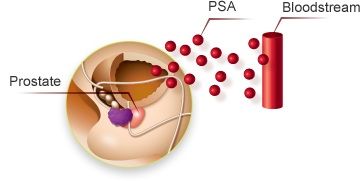
USG
Sonography can detect increase in prostate size or any suspicious nodule in prostate.
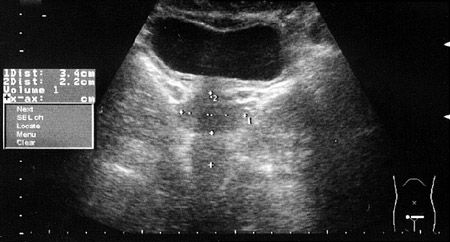
TRUS
Transrectal Sonography (TRUS) is a better modality to check for doubtful lesion.
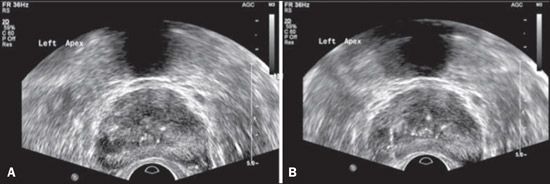
Multiparametric MRI for prostate
Multiparametric MRI uses latest technology and is the best way to find out if there is any doubtful tumour in prostate.
TRUS guided Prostate Biopsy
Sonography is used to precisely take sample from Prostate Tumour. Prostate Biopsy will confirm if there is cancer or not.
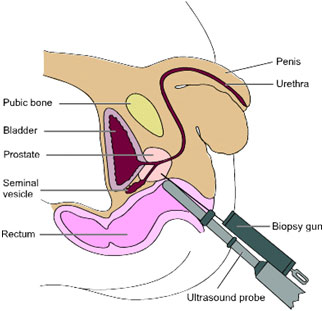
Bone scan, chest and Abdominal imaging
These tests are used to know the extent of cancer
PSMA PET scan
It is special PET scan for prostate cancer. It shows if there is any spread of cancer to other sites
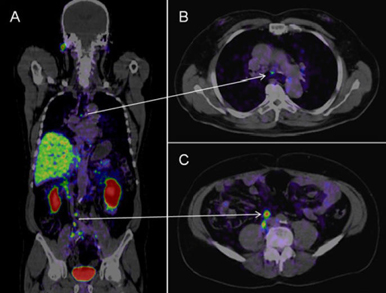
Prostate Staging and Treatment options
According to the following parameters, Cancer is grouped into various risk groups.
- Age
- PSA
- Gleason`s score, cores positive (biopsy report)
- Local extent (MRI report)
- Regional extent (presence of lymph nodes on MRI)
The main Prostate Cancer Treatment are:
Men who choose this option do not have treatment right away. But they do have routine tests to check whether the cancer starts to grow more quickly. If so, they can start active treatment then. Gujarat uro oncology provide the best Prostate Cancer Treatment in Ahmedabad.
Prostate cancer can be treated with surgery to remove the prostate gland. This is known as Radical Prostatectomy. Pelvic Lymph nodes are also removed in the surgery. Radical Prostatectomy in ahmedabad done by Gujarat uro Oncology.
Radical Prostatectomy can be done by open Laparoscopic prostate cancer surgery and Robotic prostate cancer surgery methods.

Radiation kills cancer cells. Radiation can be given from a machine that moves around your body. Or a doctor might put a source of radiation directly into the prostate gland.
Male hormones in the body make prostate cancer grow. Hormone therapy reduces the levels of these hormones, which can shrink the cancer. For hormone therapy, men might take medicines. Or they might have surgery to remove the testicles. (Male hormones are made in the testicles.) This treatment is usually only for men with advanced cancer. But some men with early stage cancer get it along with radiation or surgery.
Chemotherapy is the medical term for medicines that kill cancer cells or stop them from growing. Men with advanced prostate cancer might get chemotherapy if hormone therapy stops working. In some cases, chemotherapy and hormone therapy are given at the same time.
